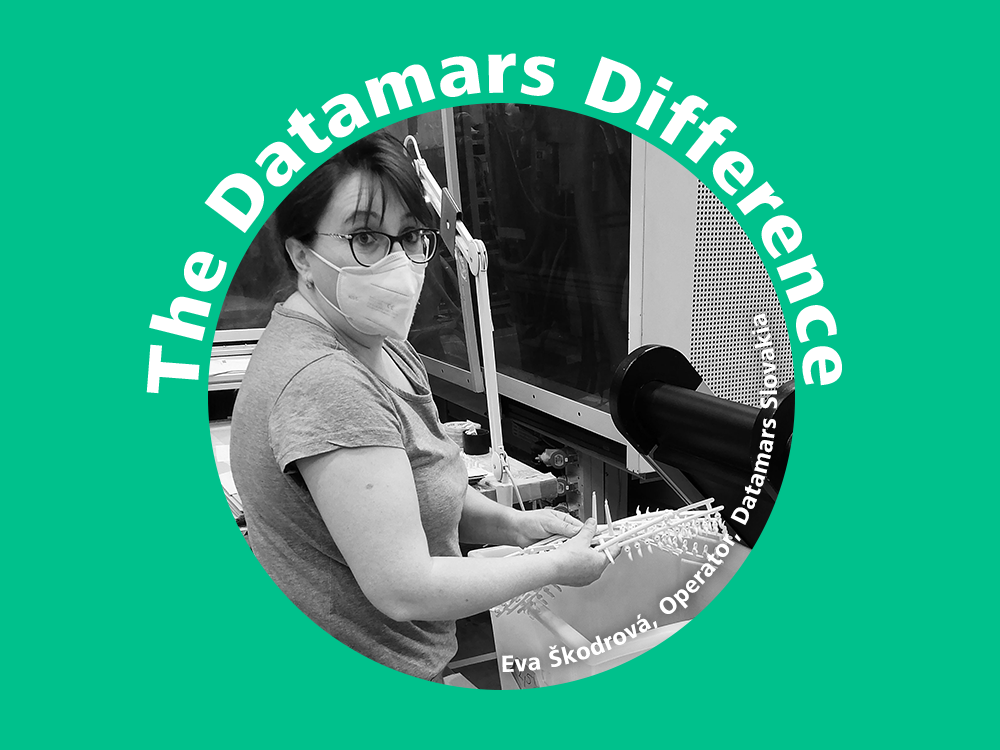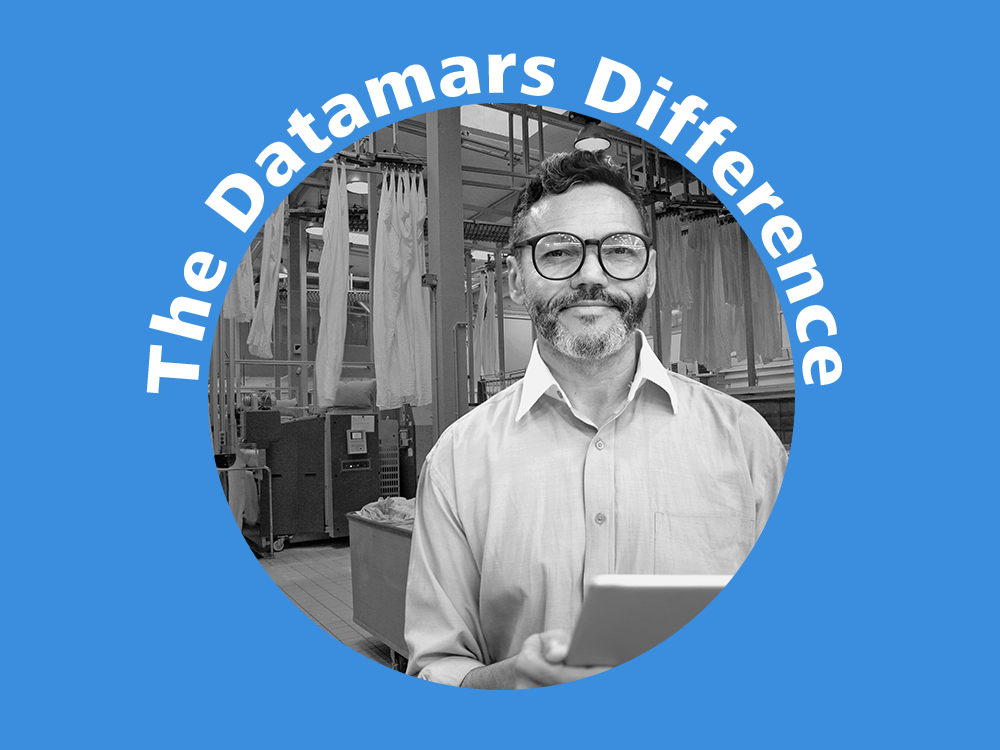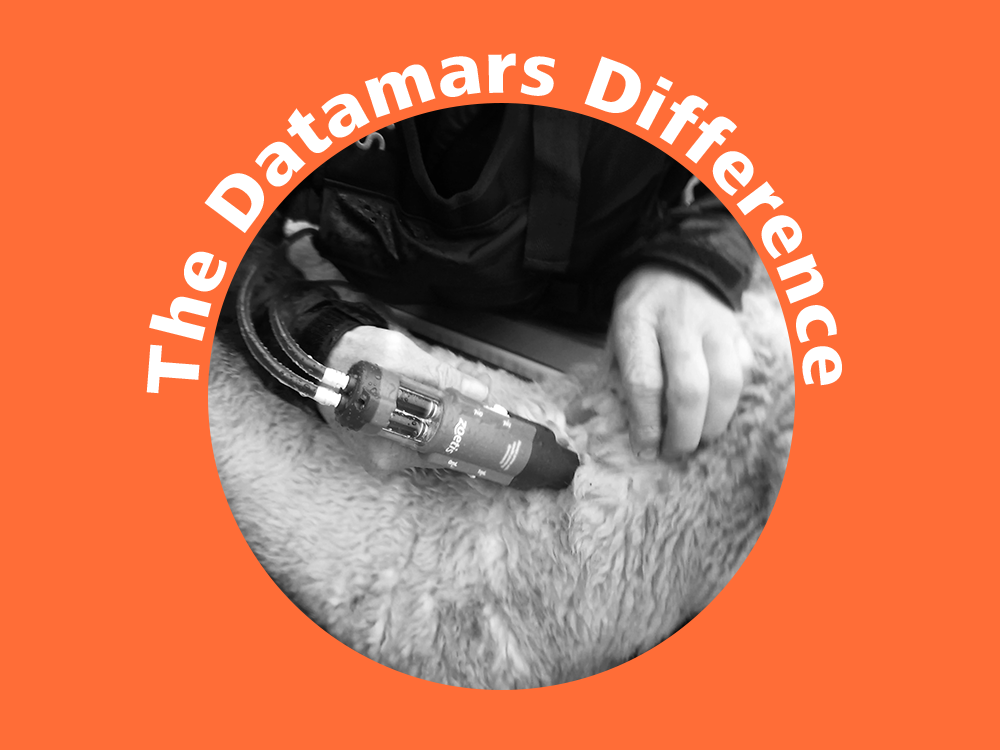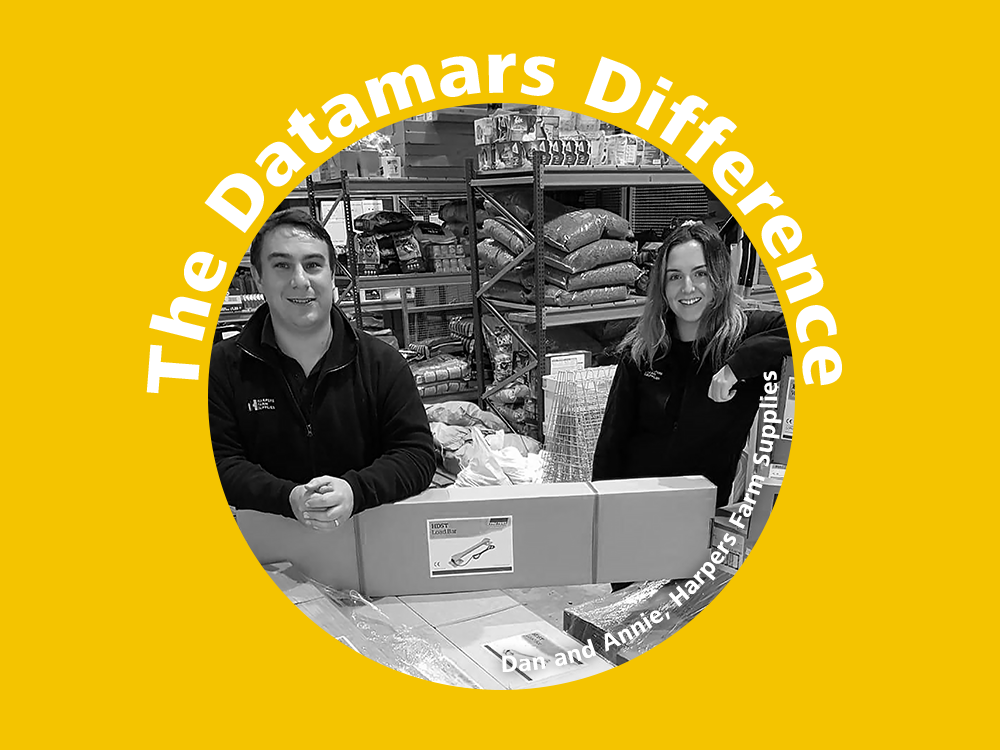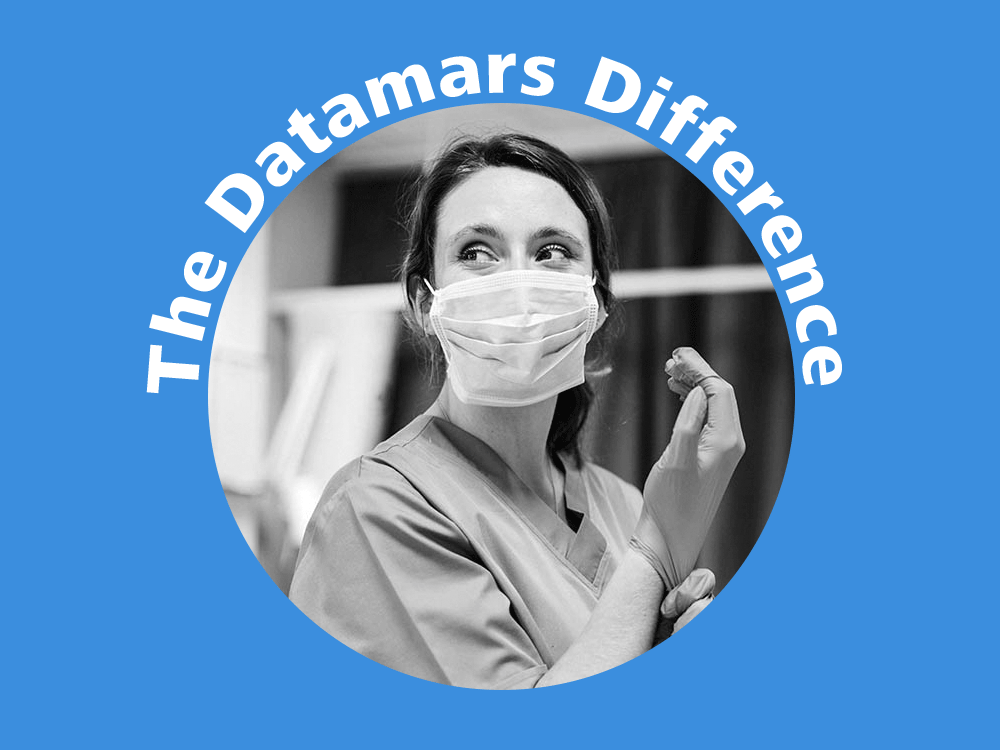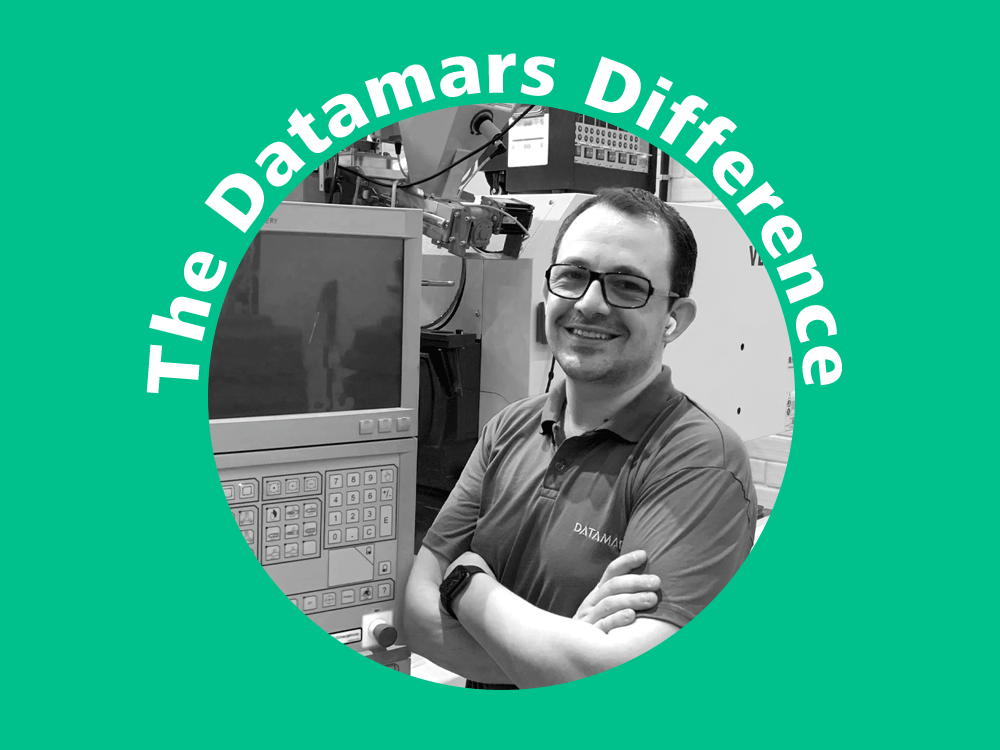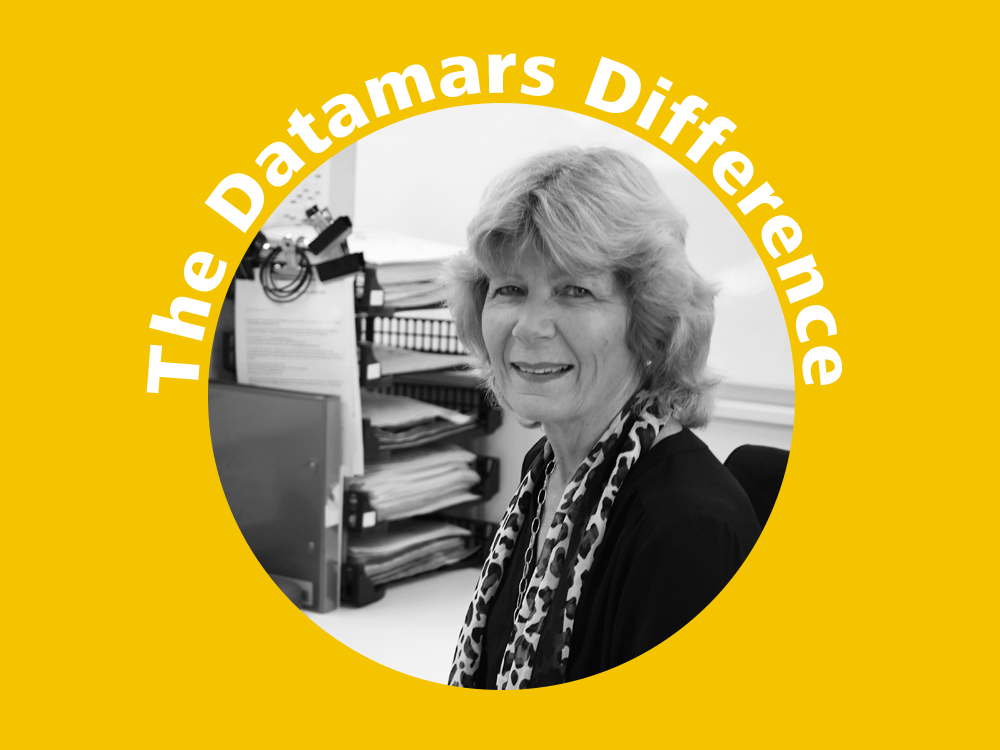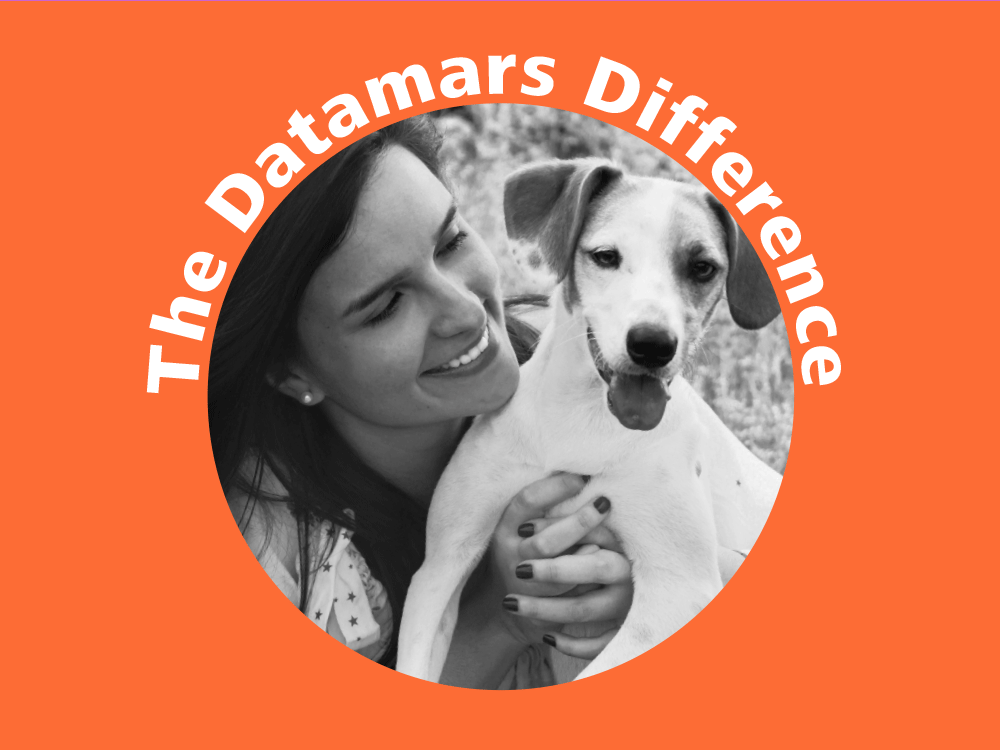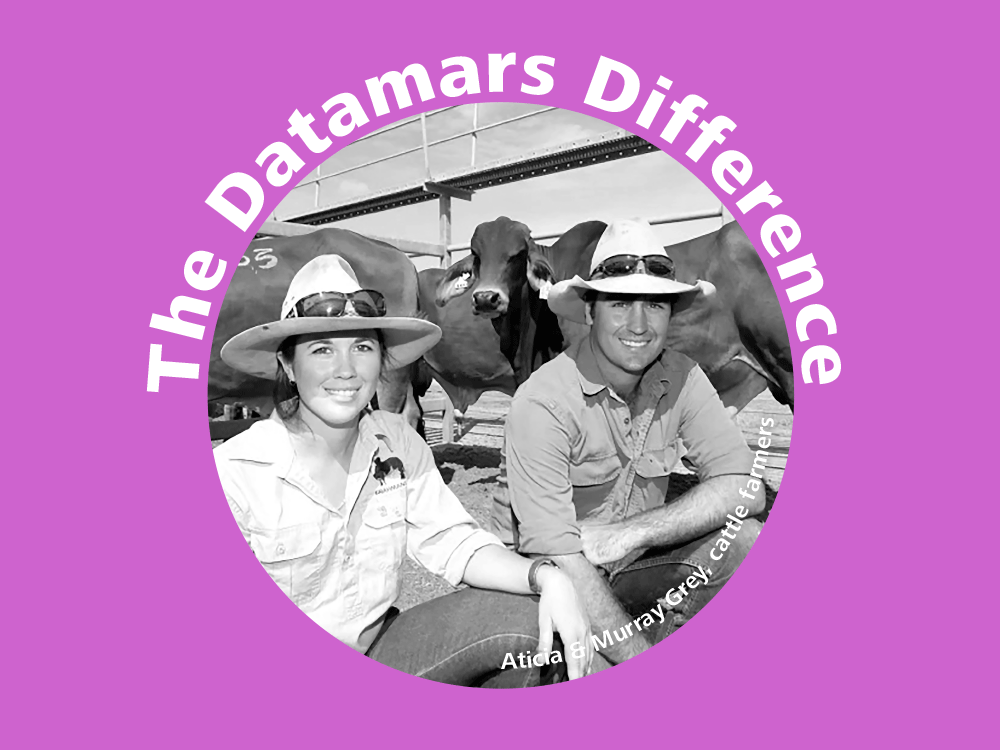The Datamars Difference
Across the world everyday, our people are working together doing great things to provide solutions to our customers which revolutionise industries, improve businesses and change lives.
Here you will find the stories our leadership team will be sharing with you for the next couple of months capturing the ‘Datamars Difference’ (we’ll add each new story as it’s released). The things that stand us apart and the result of your valued contributions, told through the eyes of our customers and our communities. We have six principles that guide our success and the journey towards our vision. Each story will showcase one of these principles in action.
Datamars is a company with a proud legacy and a compelling future. It’s a great story we are building together. We hope you enjoy reading it.
Sustainability focus sees over 60% of plastic waste recycled into products
In our manufacturing plants in Slovakia and Thailand, Datamars has made major strides in the responsible production of plastic products, with comprehensive methods in place to recycle over 60% of plastic waste within our manufacturing processes at these two sites.
As an organisation, we are taking an active approach to clearly understand, monitor and improve the impact we have on communities and the environment. In our manufacturing hubs, our teams are focused on best practice reuse and reduction of plastic waste, with over 325 tonnes reused back in production by our Slovakia and Thailand plants in 2020.
This recycled plastic waste, called regrind, is created from the plastic runner (or the leftover edging) that remains after molding a plastic product, such as a tag. Instead of being scrapped, the runner is ground into small parts and re-used in production. In Slovakia a total 188 tonnes of regrind was used in production in 2020, representing 74% of the plastic that could have been wasted if not recycled, and in Thailand the figure was 140 tonnes which is about 53%.
Not all products are able to incorporate the use of regrind due to quality limitations (for example, regrind cannot be used in certain Pet ID products) and historically a typical product may only be made up of 10 to 20% regrind. In Slovakia Martin Miškovič, Quality Supervisor, says the team has been working to improve the percentage of regrind able to be used in each product through a ‘regrind usage’ project started in May 2020. So far this project has seen 43 products go from using 10-20% regrind, to 100%.
“For the project, we analyse the manufacture of each product one at a time, working on methods to increase the percentage of regrind used. We test the quality of the tag by exerting extraction force on it and if needed we make adjustments. Once quality is reached we validate production of the product,” says Martin.
In Thailand, as well as the use of regrind, Martin Hustadt, Injection Molding Manager, says the team is working to reduce the amount of plastic runner produced with new technology, using hot injection molding tools instead of cold.
“The initial outlay for the hot tools is more costly than for cold, but the precision of the hot injection molding tools, means that runner is either completely eliminated, or significantly reduced.
“Other ways we reduce runner is to revaluate how older products are manufactured, then redesign the production of these products to optimise outputs and decrease waste in the production process,” says Martin.
Where runner can’t be reused, for example a small product run in a specific colour, Martin says the Injection Molding team has improved its recycling practices and seen a decreasing trend in the amount of plastic wasted.
“We have implemented better sorting processes and educated staff on these processes to be able to sell the runner we can’t reuse for recycling. In 2018 75% of plastic waste was non-saleable, today in 2021, through improving sorting processes, 75% of plastic waste can now be sold.
Our North American team also recently began their journey to use regrind in manufacture, starting a project in 2020 to introduce it to the manufacture of some tips. With one tonne of regrind material used to date, the team believes it has a lot of future scope to increase regrind and reduce waste by incorporating it into tag production.
Datamars Thailand and Datamars North America are both currently on the journey to be certified for ISO14001 Environmental Management Systems this year. Being ISO14001 certified means that environmental issues relevant to our operations, such as air pollution, water and waste management, climate change mitigation and adaptation, and resource use and efficiency are all considered.
Datamars Slovakia, Spain and Switzerland are already certified to ISO14001 standards and we are committed to achieving this in all our major sites worldwide. This work, alongside our global climate impact assessment, which provides a data benchmark for major climate impact factors and targets to help guide our improvement, position us well to continually build on these great efforts and make a measurable difference to sustainability worldwide.
Continuously taking textile management to the next level
Over thirty years ago, Datamars pioneered new technology that completely transformed the industrial laundry market, enabling tracking and automation of textiles to happen effortlessly. Today we continue to lead the market. For the first time in the sector, Datamars is applying machine learning, a branch of artificial intelligence (AI), to RFID. AI ensures the most accurate identification to date, paving the way for a new generation of reading system.
Effective asset control allows a laundry to improve efficiency, reduce losses and increase profitability. However, before Datamars launched its solution, Riccardo Mazzolini, Vice President Textile Identification, explains that it was very difficult to track laundry items.
“Initial tracking efforts used barcodes, but there were issues. Firstly, you had to physically find the label on each individual item in order to read it, which was time consuming. Secondly the barcode was not very durable and had to be regularly replaced, otherwise the customer would lose all the history and traceability.
“We aimed to provide a solution that was durable and ‘invisible’, by combining the technology from barcode market leader ‘Datalogic’ and Audemars watch company, who we used to manufacture the coil and antenna (it’s similar to what is used in a watch and yes, the joining of Datalogic and Audemars formed the Datamars company!) We then improved on this technology by inventing the LaundryChipTM, which used radio frequency identification (RFID) technology.
“Our unique LaundryChip was specifically designed to overcome the harsh operating environment of industrial laundry operations, which is very different to other standard applications of RFID technology. It was a major step forward that achieved even greater levels of optimisation.”
But Riccardo says the real game changer was when an ultra high frequency (UHF) version was released.
“In the beginning the return on investment was challenging, so only very advanced companies adopted the technology. But around 2014 the introduction of new UHF technology created a boom in business.
“Prior to UHF, the low frequency technology allowed one read at a close distance. UHF allows you to read thousands of pieces at a distance, so you can do an inventory check in only a few seconds, creating an instant picture of your assets impossible to achieve before.”
UHF established RFID as a known advantage in the laundry market. But its ability to read tags from a long distance and without line of sight, means that unwanted tag readings can be picked up in the surrounding area.
Until now, this was addressed by containing the reading area with shields, or setting thresholds on reader parameters, which limits the flexibility of RFID and slows down operations. Our new RFAID technology launched to customers in February, is an innovation which completely solves this problem.
“The AI system learns and improves automatically through experience, using data extracted from all the RFID tag readings to classify each tag. In this way, instead of working to avoid stray reads, the system is able to recognize and discard them.
“The result is a product that delivers the highest level of accuracy and productivity for the customer. The technology is completely non-intrusive in the laundry flow and simple to operate – there is basically zero configuration needed.
“30 years ago we set the standards in this industry and once again Datamars is pushing the boundaries. Thanks to our pioneering use of artificial intelligence in laundry applications, we are offering the most high performing UHF RFID reading systems in the market – more precise, flexible and adaptable – to deliver measurably better user experiences to our customers.”
Customer collaboration ensures gains in animal health
Animal health products are essential in livestock production to protect animals from disease and maintain their health and wellbeing. The Animal Health Delivery Systems (AHDS) team are experts in the field, helping pharmaceutical customers and farmers to deliver medicines and vaccines safely and effectively.
Animal health company Zoetis is one customer who relies on a very close relationship with Datamars for purpose built designs that ensure its treatments are delivered safely and effectively and to support their market leading position.
With a long history of cooperative development, Datamars makes a measurable difference to the safe delivery of Zoetis vaccines with several injector products.
SekurusTM is used to deliver ImprovacTM, an injectable product for pigs that avoids the need for surgical castration of piglets but which could potentially be a risk to human operators if they accidentally self inject multiple times. The injector features a needle guard and a trigger that prevents the medicine from being released unless it is fully depressed.
“The Sekurus two-step approach was a game changer and the ultimate for operator safety,” says Marty Stevens, AHDS Key Account Manager for Zoetis Australia.
“We subsequently went on to develop a modified version, the AccurusTM, which features the needle guard only. It offers considerable operator safety and is also better adapted for the placement of vaccines under the skin of sheep and cattle, improving product efficacy and reducing unwanted injection site reactions. These features also fit with Zoetis’ strategy for their other vaccines, such as GlanvacTM and EryvacTM.
“Glanvac prevents ‘cheesy gland’, a bacterial infection of sheep and a food quality issue, while Eryvac prevents a type of arthritis in lambs. Both were being administered separately using Accurus so we designed the Slimline Dual injector from scratch. The Dual injector delivers both vaccines simultaneously through two barrels and a single needle, is ergonomically wonderful to use and also uses a needle guard for operator safety and careful placement of the injection.
“The Dual injector reduces farm labour and time requirements – one injection per animal instead of two – and has helped Zoetis improve their market share while further supporting their commitment to operator safety.
“While all of these developments for Zoetis feature functional benefits, we also made sure the materials used to make the injectors were compatible with the Zoetis vaccine formulations.
“Chemical formulations can damage certain resins and we do a lot of testing to ensure the materials for components such as barrels, o-rings and valves are compatible with customer formulations, before they go to market.
“When Zoetis was about to release StartectTM, a new oral worm drench for sheep, they found that the product flowed too freely out of off–the-shelf drench guns, leaving farmers noting a lot of expensive product on the ground instead of in the sheep! We were able to design a specialised drencher for them that accounted for Startect’s low viscosity, delivering the product more effectively,” says Marty.
Datamars AHDS many close customer relationships and partnership approach, not only enable us to deliver world leading products that help solve critical issues in farmed animal health and productivity, but also ensure that the business is well placed for future developments in animal health.
That future will include smart devices that help record individual animal information, including what is administered, when and how much. Datamars’ capability is already enabling us to present options for this to animal health companies and farmers. The unique knowledge and relationships of our experienced developers and sales team is paving the way for an exciting, smart future.
Transforming global pet reunification
Datamars helped generate major change which made pet microchipping a truly viable option to enable traceability of companion animals. Today, microchipping gives our customers the best chance to be reunited with their beloved pets should the worst occur. But the odds weren’t so good in the early days of the industry.
Until 1998, if you microchipped your pet, it was possible that a vet might scan your pet and not detect the chip. The reason was a lack of standardisation. The four main players in the market; Datamars, Destron, Avid and Trovan, were all using chips with their own manufacturer’s standard. A microchip would not be detected if your pet was scanned with a reader from a competing company because it was searching for a different frequency.
Microchipping needed to follow a global standard in order to be a valid solution for lost pet recovery and reunification. As a result, Datamars proposed the creation of a specific standard with the International Standard for Organisation (ISO) and worked with other industry players to collaboratively agree on the new solution.
Thanks to our efforts a new ISO microchipping standard, 11784/11785, was released in 1998. This initiated the transformation of the pet market. The global standard was an essential step to assure that in any location in the world, if your lost pet was scanned the chip would be detected.
Datamars moved quickly to reconfigure our microchip offering to the new standard and were the fastest to offer a chip that provided a universal solution. This shift enabled us to begin our journey to become the number one provider of pet microchips in Europe.
Business was off to a slower start in the USA, which today represents our biggest market, with over 2 million animals chipped annually. International Sales Manager, Knuth Newman, recalls a dispute over technology and patent regulations.
“For a time, Petlink USA was prevented from selling due to a lawsuit from our competitor, Avid. Avid had a USA patent to exclusively use glass technology to house microchips – the technology Datamars manufactured and sold in Europe. Ultimately, we won the lawsuit, but in the interim we innovated!
“As an alternative to glass, Datamars leveraged its technological expertise and experience to produce a unique polymer transponder. Compared to glass, the polymer design has many advantages. It fits like a glove around the chip and is a bit smaller. And while glass is a strong reliable product, polymer is unbreakable,” explains Knuth.
However, business was still not thriving in the USA. Datamars had entered the market in 2006 in an exclusive partnership with Bayer. When Bayer exited the market in 2012 PID President Brian Zapach says it presented Datamars with an opportunity.
“Bayer’s exit allowed us to focus entirely on distribution sales to vets and separately establish a direct sales strategy for the previously ignored non-profit / shelter market. We signed a distribution contract with Vedco, which is a buying group for the largest veterinary supply distributors in the US, and implemented a sales team led by Steve Wilcox to support distribution’s market penetration.”
Brian explains another key part of the strategy was taking full advantage of the PetLink Database.
“Part of the deal we had with Bayer was to provide a reunification database, but the agreement with Bayer allowed us permanent ownership of all pet and owner data. This database was PetLink. Our strategy was to include registration in PetLink with all microchips at no additional charge to the owner for the lifetime of the pet. This decision really differentiated us in the US market and was a very attractive feature to vets and shelters. All other competitors at that time charged pet owners annual fees which was a difficult message for vets to deliver to their customers.
“We also integrated our database with several shelter and vet software systems to allow the automatic import of owner and pet information into PetLink. This greatly reduced the time needed to register pets in our database, and just as important, increased overall registration compliance.
“Thanks to the success of our sales strategy and the integrated solution we offer to vets and non-profit organizations, the number of new pets registered in PetLink has consistently grown. Today we routinely register approximately 80,000 new pets in PetLink per month.
“Reunification databases like PetLink are not coveted in many worldwide markets for various reasons. However, PetLink is available in France, which is our second biggest market, and this year we launched PetLink Brazil, which we hope someday will enjoy the same volumes we have grown to in the US!”
As the PetLink business has grown year on year, so has an industry which brings real joy to millions of pet owners worldwide.
Global reach grows committed supply relationships
The establishment of a distribution centre at Datamars Slovakia has been a game changer for our ability to help get our livestock solutions in the hands of producers across the Northern Hemisphere.
Without a European distribution centre, products ordered from our New Zealand manufacturing base could take up to five months to arrive once an order was placed, factoring in manufacturing and shipping. This meant that our distributors had to do a lot of advanced planning and bulk orders to optimise logistics costs.
Datamars Slovakia (DMSK) has been a production facility for Datamars since 2013, but since its distribution capability came online in late 2019, we can be more responsive to our distributors and with shorter timeframes.
In the UK, this has meant our channel partners have been able to meet extraordinary demand for our products generated by government grant schemes, which have encouraged and supported farmers to buy equipment to help improve productivity. While demand was anticipated, the uptake of the schemes exceeded government projections by 30%.
Datamars distribution partner, Harpers Farm Supplies has benefited from the scheme and the ability to easily source Datamars Livestock products including the Tru-Test weighing and EID readers, having made huge sales strides recently.
Dan Miles at Harpers says they had a clear strategy. Firstly, to bring in outside expertise to advise farmers through the grant aid submission ‘minefield’ and secondly sourcing a reliable and responsive supplier.
“As a supplier, Datamars has provided exceptional product and logistical support and delivered on time,” says Dan.
As part of that support, Harpers were looking for a supplier who could also advise what to order. Datamars team member, John Frizzell played a big part in the process, talking to over 20 farmers a day with advice on the correct weighing and EID reading solutions to source through the grant schemes.
“Orders placed through this partnership have been huge. There has been good communication through all our Datamars UK and Slovakia functional areas to meet demand. From initial forecasting, procurement, customer service, operations and dispatch and then through to finance,” says John.
Simon Bonner, Group Supply Chain Coordinator, says the popularity of the grant resulted in a lot of un-forecasted orders.
“Luckily when the over and above orders hit, we had safety stock in Slovakia and could move it quickly into farmers’ hands. Meeting UK demand hasn’t been perfect, but without the distribution centre many customers wouldn’t have been able to incorporate our weighing and EID solutions into their livestock operations.”
The overall impact of the UK grant scheme and our flexibility to respond from DMSK has seen livestock orders already exceeding budget for the UK business, with 6 weeks of the financial year still to go. The Tru-Test products have been a major contributor with the livestock monitoring category moving ahead 14% in the year to date.
Simon says in the first year of the distribution centre’s operation, the initial challenge was to understand demand forecast once customers could make smaller, more frequent orders.
“The team learnt a lot in 2020 and the demand profile is now better modelled, we expect 2021 to be much smoother for distribution.
“As well as leveraging warehousing capability in Slovakia, we have also been able to leverage DMSK’s world class manufacturing capabilities to assemble load bars for the local market, starting in November. These are particularly heavy items, previously only ordered in bulk on long lead times from New Zealand.
“O’Donovan Engineering Co in Ireland just placed an order for 100 sets of load bars. Because of the forecast planned through our customer, sales and operations teams, the raw materials were ready to go at DMSK and the team is assembling the stock to deliver in January. Without DMSK, O’Donovan Engineering would be waiting until March or April to receive the stock and likely have to spend several thousand euros on air freight.”
Simon says that ongoing work to optimise our supply chain, and realise associated reductions in cost, means Datamars can have a truly competitive global product that enables us to build committed relationships with distributors. It has also strengthened relationships with suppliers upstream.
“Opening the distribution centre in DMSK gave us an opening to share our vision of manufacturing excellence with our supply chain partners upstream, by signalling a strong commitment from Datamars to grow the European market. We have had some great conversations with our suppliers to gain a competitive edge on supply costs and also ensure supplier reliability during shortages.”
As Dan Miles from Harpers says, it’s a long term relationship.
“A long term partnership we hope will continue to blossom in the picturesque south west corner of England famous for rich, creamy milk from all the lush green grass!”
Certainty in times of crisis
The advent of the global coronavirus pandemic in 2020 has meant that health has never been more of a priority. In this time of crisis, our textile identification business (TID) is trusted to help to protect the lives of those working in some of the most at risk environments.
The growing demand for reusable – and therefore traceable – personal protection equipment no longer concerns only face masks but also the gowns of healthcare workers in hospitals. Washable gowns are becoming increasingly popular due to a world-wide shortage of disposable gowns as a result of the coronavirus emergency.
To keep patients and health care workers safe, hospitals around the world, including the UK National Health Service, are relying on our radio frequency identification (RFID) technology to track doctor’s gowns and face masks as well as hospital bed linen, to ensure items are properly sterilized and remain effective.
During this crisis our technology is not only relied on in the health care sector. Theme park mogul Disney is planning to trust TID’s LaundryChipsTM to ensure the safety of workers in its Orlando and Los Angeles parks, by chipping reusable cloth face masks to guarantee they do not reach the maximum number of wash cycles, therefore ensuring their efficacy.
Our TID team’s responsiveness to its customers was a factor in Disney’s choice to trust Datamars. TID worked with Disney to test tag reading performance and fine tune the chip embedding procedure and logistic process with their supply chain. This will allow us to directly supply our LaundryChipsTM to Disney’s cloth mask production in Asia.
Silvia Primi, Marcom Manager TID, says this approach to working with customers to deliver a product they can trust and that meets their specific needs, is the cornerstone of TID’s success and reputation in the market.
When developing its products, TID’s dedication to quality through gaining customer insights, conducting market research and testing gives customers confidence, especially when lives are on the line.
Riccardo Mazzolini, VP Textile ID, says that performance and safety are always top of mind when developing new products.
“The healthcare application field is extremely demanding. We focus on continuously improving the performance of our transponders, delivering products with the highest level of quality and safety.”
Datamars LaundryChips are the most trusted product of their kind in a hospital environment for two reasons. Firstly, our technology is the market leader in enduring the harshest industrial laundry conditions: high temperatures, pressure and exposure to detergents and chemicals, while delivering the most precise tracking data.
Secondly, extensive research, development and independent testing has ensured that our RFID technology can be used safely in an MRI.
Damien Pachoud, Chief Technology Officer, says the R&D team made an in-depth analysis of all the individual components of the tags in order to design a suitable chip.
“We re-considered the materials used to manufacture our transponders to make the transponder almost invisible on MRI images. This was managed very efficiently thanks to Datamars’ vertical integration which gives us full control over our production.”
Once the new chip design had been formulated, extensive testing was carried out with a specialist laboratory, ensuring the highest level of safety and quality for MRI compatibility.
Through continued research and innovation, exemplifying excellence in the field and collaborating with customers, our textile ID business has built a trusted brand known for its utmost quality – ensuring we can deliver certainty and peace of mind when it is needed most.
Expanding horizons
Italian born Paolo Cicuta took the opportunity to live abroad and join Datamars Slovakia as an Injection Molding Specialist four years ago and now is on a new adventure to Datamars Brazil, taking on the challenge of opening up our new injection molding plant in Porto Alegre.
Paolo started working in the injection molding sector at 17, and says his passion for the work was inherited from his father who worked in the profession for 30 years. In May 2016 he was contacted by the then General Manager of Datamars Slovakia, Christian Narvaez, asking if he was interested in a new job opportunity abroad.
“At that time I was working in Italy and wanted to change. I love to travel, and after visiting Datamars Slovakia I realized that this was my chance to change my life and have an experience abroad with a growing multinational company,” says Paolo.
Paolo was mainly involved in the optimization of production processes and in the validation of new molds and products. He helped the local production grow and gave support for the purchase of new machines and equipment and for the transfer to the new plant.
Paolo enjoyed the work and his time in Slovakia and is thankful for the opportunity Datamars gave him to grow with the company.
“The first thing I noticed in Datamars after a few months, was that if you show potential and seek opportunities the company gives you all the support to help you grow within Datamars.
“My life in Slovakia was really beautiful. It is a lovely country in the centre of Europe with many cities to visit and is surrounded by nature. I fell in love with Slovakia and met people who are like my second family and will always remain in my heart.”
Last year Paolo heard that Datamars was opening an injection molding plant in Porto Alegre. He told management that if they needed a person to help start production they could count on him.
“The thing that attracted me to this new role is the possibility to start a production plant from zero, build a new team, have personal growth and utilise my potential.
“With a population of 429 million, South America has enormous potential for Datamars and we have the opportunity to become the leaders of this market by making customers aware of the quality of our products and how they can help them and by releasing new products to the market.”
Paolo arrived in Porto Alegre in August and is feeling comfortable in his new home.
“I have found some fantastic people who are helping me settle in and the local team is very friendly. Porto Alegre is a big city and it’s very nice.
“I haven’t had the chance to travel much around Brazil yet, but I have been to Gramado which is a city made up of German and Italian people. It seems to be in Europe! In the Rio Grande do Sul area there is a great influence deriving from the immigration of Italians and Germans who arrived in 1880. Many Italians came from the Veneto, which is a region bordering my region of birth, so between Polenta and Prosecco I can say that I feel at home.”
“I am very happy I took this opportunity; I have learned new languages and am collaborating with some fantastic colleagues. A better choice I could not make!”
Growing together on the job
Jane Flower has grown a career with Simcro, now Datamars, at our Hamilton office in New Zealand over the last 16 years. She started in 2004 on the production floor, and after making the most of opportunities to grow her skills with the company today holds the role of Accounts Payable Administrator.
Jane, who has been married for 41 years, has two children and took a long career break to raise her family. Her son lives in Sydney, Australia with his fiancée (after two wedding postponements due to Covid, Jane is crossing her fingers for a wedding next year!) Her daughter lives in Whitianga (in the North Island of New Zealand) and is married with a four year old son, who Jane loves spending time with.
Before having children Jane worked in accounts and also as a sales rep for an office supplies company. When her youngest was at school part time seasonal work in orchards was perfect to fit in with the needs of her family.
As Jane’s children grew up she was keen to return to full time work, but with no formal qualifications and having been out of the work force it was tough to find roles of the kind she had before raising her family. A friend who worked at Simcro in the R&D department suggested she apply for a role in production. He said it was a great place to work, and Jane decided to take the plunge.
Jane joined Simcro (now Datamars), working in production assembling products such as drench guns and vaccinators. Jane appreciated the company culture at Simcro, which she says has been like a family.
After two years in production Jane wanted more challenges. An job opportunity came up in the warehouse and she was pleased to be appointed. It was a varied role, which involved driving the van, picking up and dropping off parts to/from suppliers, loading and unloading the trucks, entering product into inward goods and picking items for work orders.
The biggest appeal of the role for Jane was the opportunity to gain new skills using computers.
“The widespread use of computer systems became more prevalent while I had been away from work and I was keen to gain the knowledge to use them. I had no experience at all and appreciated the opportunity to learn on the job.”
In 2010 she was promoted to a reception and accounts payable role, which provided another opportunity to upskill by learning the accounts system. When the company grew in 2015 so did the accounts payable function, and she became solely dedicated to this position.
Jane says she enjoys the challenges of her role and the contact she has with people internally and externally.
“Every month there is a sense of achievement in getting the accounts at month end done on time. I enjoy the problem solving aspect, such as fixing the invoices that aren’t right. I also have a lot of contact with external suppliers and get to interact with most of the people in the company.”
“I’ve always loved working for Simcro, and now Datamars, they look after their staff. Health and safety are important, with meetings every month and measures such as micro pauses to stop repetitive strain injuries. I appreciate benefits such as a nurse onsite one day a month, annual flu vaccines, and the option to have confidential counselling if you need it.
“I also feel informed here, which I appreciate. Recently the management team came to Hamilton to update us on activities in the business, it was great to see them in person and have the opportunity to find out more about initiatives underway.
“I still have opportunities to learn more and be challenged and as a company I feel like we have a great forward direction and will only grow stronger.”
Peace of mind that’s priceless
With a database of over 4 million pet owners across North America our US PetLink team are in direct contact with 100’s of customers a day, 24 hours a day, 365 days a year working to reunify lost and found pets with their beloved families.
This customer closeness is enabled through an integrated solution anchored with our radio frequency identification (RFID) and data capture technology and brought to life through our smart customer facing reunification software, an intensive digital engagement strategy that drives customer connection and a customer service offering that is unmatched in the market.
Customer Service Manager Maggie Rohlfing says the connectivity and support is a service their customers rely on them for.
“Not all microchip companies commit to providing this level of customer service, but we know it is extremely comforting for our pet owners to have a voice on the other end of the line in their time of need.”
On a daily basis the team manages around 215 emails and receives around 276 calls. During times of crisis such as recent floods and fires in the USA, the business supports an even greater volume of queries, with daily calls to the team reaching up to 500.”
Maggie says the Pet ID customer service team track the happiness they provide to their customers as part of their daily interaction. Customer happiness is not just a nice to have. It’s a key business performance metric.
“Alongside other metrics which we track and report on weekly, the team track the Happiness Score, which helps monitor our performance in the eyes of our customers where it matters most!
“Every time we exchange an email with a customer they are given an opportunity to rate us and leave comments. Our Happiness score usually sits around 85% and is calculated by subtracting the ‘Not Good’ percentage from the ‘Great’ percentage.
“As well as providing a great temperature check on our customer service performance, it also acts as a feedback tool for our team and provides valuable insight into areas where we can improve.”
The responsiveness of Datamars’ service and the robustness of our technology solution provides peace of mind to our Pet ID customers. When a pet is found, the team contacts the customer immediately via three channels; text, email and phone. A service that has delivered joy to hundreds of thousands of families. This example of a family’s reunification with their dog in North America is just one example of the life changing difference our offering makes in the world of our customers;
“When Doc went missing our garage door must have blown open. Doc loves running in the fields around our house, but he’s never there unsupervised and always stays with us. That day I was terrified when I called for him and he was gone. I drove for hours and miles around our fields. Nothing.
“The next morning when I got a text from PetLink that he had been found, I was thrilled! The Denver Dumb Friends League (DDFL) called to tell me they had him. Because he was up to date on his microchip info, it was moments after they scanned him that I received the PetLink text, then subsequent call from DDFL. I’m so grateful for his chip! Not only did it let me know where he was, it helped calm my worries, knowing that if he was taken somewhere, I would know as soon as they scanned for the chip. You never think this will happen, but the peace of mind knowing my puppy is always going to come home is priceless.
“Thank you so much for everything. The follow up texts and emails to make sure he is home mean the world to me.”
Remote WOW (autonomous walk over weighing) powers sustainable livestock production
As the world’s population grows along with the demand for quality protein, agriculture’s biggest challenge is to produce more with less, reducing environmental impacts and the use of scarce resources and ensuring animal wellbeing. To support the sustainability of livestock production and the livelihoods of those who live and work on the land. Datamars is putting powerful data about individual animal needs in farmers hands to help them make better informed and more responsible management decisions.
At the Glenforrie Station in Australia, the Remote WOW system is helping the Grey family more efficiently and sustainably manage their livestock and resources, by providing the ability to understand and act on individual weight based animal performance information remotely, via their smartphone and without human intervention.
The Grey’s typically run five-and-a-half thousand head of Brahman cattle across their 197,000 hectare station and 130,000-hectare neighbouring sublease. While weight is well understood as a critical performance indicator, in a geographically spread out farm, mustering cattle to the yard for weighing is a resource intensive process which comes with a hefty price tag. The animals lose condition from stress and time off feed and face the same walk back to the paddock if they’re not at market spec.
Placed next to a water source, the Remote WOW weighs cattle in the paddock and drafts off top performers. Cattle weigh themselves with little human intervention thanks to the innovative training aspect of the WOW system meaning the Greys can deal with a targeted group instead of the whole herd.
Before adopting Remote WOW the family were amazed at the shrinkage that occurs from handling the animals and breaking their routine. One herd faces a 14-kilometre daylong walk to the homestead yard when mustering. The cattle are fed hay and water overnight but were discovered to be losing an average of three-and-a-half to five percent of body weight from paddock to yard. It took two weeks for those animals to get back to their original weight.
Murray Grey says it’s what made the auto-draft feature so exciting. “Instead of an entire mob being handled and losing 20 kilograms each, just the number of cattle needed is drafted off and can go straight on the truck. It also means a four or five-person operation is now a one-person job.”
With WOW, real time insights are delivered via Datamars Livestock Cloud on how livestock are progressing towards target weights, together with early warnings of poor performance and health issues. This level of insight enables informed, targeted decisions regarding feed and health treatment and allows for more efficient resource use.
Running a breeding operation is what first attracted the family to the Remote WOW system and Murray says they’ve had good bang for buck in replacing their breeding heifers. The system identifies exceptional performers and they can select accordingly. Being able to receive real-time data from anywhere in the world is also impressive.
“While I was on holiday in New Zealand I was able to log in and check that things were going well. It also shows things that weren’t even on our radar.
“It’s becoming harder and harder to remain profitable in this game, these sorts of developments are huge drivers in maintaining our profitability. You can essentially find a leaking hole and plug it in one move.”
However, Murray is quick to point out it’s not just about making money. The Remote WOW system feeds into Glenforrie’s bigger goal of a more connected farm, with animal welfare at the core of what they do. They also use the system to improve soil health and better manage grazing pressures to ensure they’re not overgrazing.
Murray says the technology actually allows them to deliver on the statement that animal welfare is important to them. “I like to think that on the whole it’s making us markedly better animal managers and land managers.”
Seamless integration breeds success
Melior is a leading provider of venison genetics, whose philosophy to be socially, environmentally, and economically sustainable underpins everything they do. With a calving operation of 1,300 elite stud hinds, their objective is straightforward: to use quality genetics to create maximum profitability for every commercial venison farmer in New Zealand.
Owner Tom Macfarlane says the key to their operation is genetic progress, achieved by analysing and selecting the best animals – for which data is absolutely critical.
“We’re looked upon as one of the leading providers of venison genetics in the country, so genetic progress is key, as is accurate data recording to prove that we’re making progress in all avenues,” says Tom.
Our integrated Datamars Livestock solution of Tru-Test XR5000 weigh scales, XRS2 stick readers and Datamars Livestock cloud software, make it easy for Melior to identify individual animals, collect and analyse powerful data on their performance and make informed decisions that drive success.
It gives them the ability to accurately record all data against tags electronically and visually, reducing human error, and enables a geographically spread management team easy access to a cloud database, which they can use to view and manage farm data and stock records.
For farm manager Danielle Clearwater, Datamars Livestock’s solution is integral to Melior’s operation.
“Once set up you can fly through whatever task you are doing, whether it’s weighing live weight or velvet, or recording for tagging, DNA samples, pregnancy scanning, drafting or recording mating or parentage info,” says Danielle.
Datamars Livestock cloud has the advantage of being able to link to other farming software, which makes it straightforward for the Melior team to regularly transfer information to FarmIQ and NAIT (the national traceability database).
“A huge benefit is the ability for multiple people to be working on a common file at the same time, allowing genetics and office staff to see live animals on farm and their status,” says Tom.
One of the draw cards of our solution for Melior is the outstanding level of support we provide. Our Agtrac team help customers get up and running with their weighing and EID (electronic identification) requirements, providing advice when farmers need it. And with Datamars Livestock cloud, access to support and training is immediate.
“Personally they have helped me see the big picture of where we needed to get to and have taken on my feedback for practical improvements to the system. The support is fantastic, both technically and practically,” says Tom.
The seamlessly connected solution of hardware and software that gets the job done accurately and enables analysis and insights, as well as real time support when it’s needed, mean that Melior have the powerful data insights they need to achieve measurable success breeding superior genetics.
